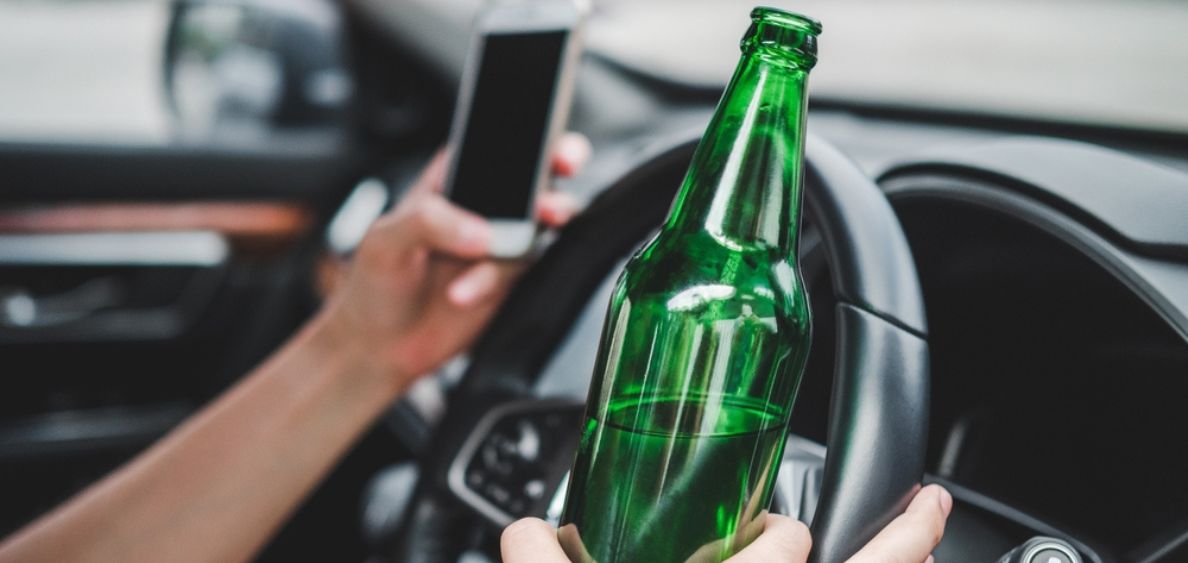Last Updated:
November 25th, 2025

According to the NHS, one in four adults in England regularly drinks at levels that put their health at risk. Not all of us understand where the line lies between casual drinking and alcohol dependence. Often, the line is crossed without even realising it.
We explore how excessive drinking creeps in unnoticed and the subtle signs of dependency to watch out for. We hope to reassure you that it’s never too early, or too late, to make a positive change.
How do the dangers of alcoholism slip under our radar?
For most of us, alcohol is intrinsically woven into many aspects of the way we live. Many of our social lives revolve around it. We might use it to commiserate a loved one’s passing, to celebrate a raise at work, or to unwind after a stressful week. Most people grew up with alcohol consumption in the household, and drinking has undoubtedly been normalised, leading us to underplay the dangers of excess.
The shift from casual to dangerous drinking will never happen overnight, and it won’t often arrive with overt signals. It creeps into our lives slowly, without whistles and bells, disguised as the “only way” we can find relaxation.
The danger lies in alcohol’s subtlety and normalisation. Drinking comes with more social acceptability than any other substance. By the time problems are obvious, observable in health, relationships, or mental well-being, drinking is likely already crossing into dependency and addiction.
Understanding alcohol addiction’s propensity to flourish silently can be the first step in noticing when “normal” drinking is becoming a cause for concern.
How alcohol starts to alter the body and mind
Even before we fully understand the dangers of excessive drinking, alcohol begins to affect the body and mind in new ways. Some changes arrive more quickly than others or are easier to spot. Some common effects of alcohol at dangerous levels include:
Common physical effects
Alcohol slows your central nervous system, which is why people usually feel relaxed or less coordinated after drinking. In the short term, this will mean poor sleep, dehydration, headaches and digestive issues happen more often. Over months or years, however, more serious physical damage develops, such as liver inflammation, heart strain, raised blood pressure and an increasing risk of certain cancers. As most of these conditions develop gradually, we may not notice them until symptoms begin to advance.
Mental and emotional effects
Alcohol also impairs the brain’s chemistry in gradual ways. Most people have experienced how drinking, at first, seems to reduce anxiety or lift mood, but these positive effects of alcohol fade quickly and give way to the next day’s low mood and irritability. Heavy and frequent drinking over time is directly linked to depression and anxiety disorders. It may even be the case that as alcoholism develops, a person is simply less likely to be able to recognise its damaging effects.
As memory, cognition and critical thinking are so often impaired by frequent binge drinking, how can a person keep the clearest picture of how alcohol is affecting their life? This makes the turn from casual use to dependency more ominous, as it grows in clouded judgement and temporary escapes from increasing discomfort.
What red flags should I look for that alcoholism is developing?
While alcohol dependence might embed itself quietly, there can be certain signs that illustrate its tightening grip. Depending on factors like your age, social life and history with alcohol, some signs can manifest as:
Either with yourself or an alcoholic loved one, has it become harder to justify a heavy night of drinking as “just a one-off”? Bingeing, by definition, is heavy consumption of alcohol in a short amount of time. If the time between episodes of bingeing is decreasing, you are certainly stepping into the boundary of alcohol dependency.
Alongside developing tolerance comes a gradual loss of control. A self-made promise of “just one or two” leans more and more towards drinking several. You might notice that stopping once you’ve started drinking feels increasingly difficult. The shift is hard to admit, but it will mark a crucial step on your journey to less dangerous drinking, or, hopefully, complete sobriety.
In conjunction with relationship breakdowns, health warnings may start to surface, made all the more dangerous if friends and family have turned their backs on you. Health scares linked to alcoholism cannot be seen as just mishaps; they are clear markers that drinking has crossed into dangerous territory, as a visible and escalating crisis.
Is it ever “too early” or “too late” to act?
Plainly put, no, it is never too early or too late to make lifestyle improvements around alcohol.
Many people are held back from acting, either by thinking drinking “hasn’t got bad enough yet,” or that too much damage has already been done. Please try to never arrive at these conclusions, as stories of hope in recovery can reassure you that you can do it.
Noticing even small shifts into alcohol misuse and addressing them can prevent years of harm. Likewise, your internal organs, like your liver, recover much quicker than most people realise, once alcohol use has stopped.
Reaching out for support today can mark the first step into the future you truly desire, where you are in control and alcohol addiction is only a memory.
Who can I talk to for help with my drinking behaviours?
If you’re worried that your drinking is slipping into dangerous patterns, you don’t need to face it alone. At Recovery Lighthouse we can help you break free from your addiction. Reach out to us today, as support is available, and change is always possible.
(Click here to see works cited)
- Health Survey for England, 2022 Part 1, digital.nhs.uk/data-and-information/publications/statistical/health-survey-for-england/2022-part-1/adult-drinking
- “Alcohol and the Brain: An Overview.” National Institute on Alcohol Abuse and Alcoholism, U.S. Department of Health and Human Services, www.niaaa.nih.gov/publications/alcohol-and-brain-overview
- Kuria MW, Ndetei DM, Obot IS, Khasakhala LI, Bagaka BM, Mbugua MN, Kamau J. The Association between Alcohol Dependence and Depression before and after Treatment for Alcohol Dependence. ISRN Psychiatry. 2012 Jan 26;2012:482802. doi: 10.5402/2012/482802. PMID: 23738204; PMCID: PMC3658562.
- NHS Choices, NHS, www.nhs.uk/better-health/drink-less/


